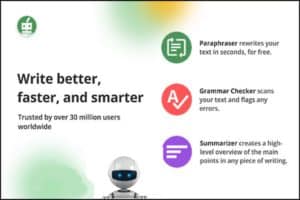Table of Contents
ToggleMaximizing Success as a Digital Marketing Specialist: Key Skills and Insights
A digital marketing specialist plays a pivotal role in elevating a brand’s online visibility and enhancing its reputation in the increasingly competitive digital marketing landscape. This multifaceted position requires a perfect blend of artistic creativity and analytical prowess, which means specialists must have a unique skill set and knowledge base to successfully navigate the ever-evolving trends and technologies that shape their marketing strategies. Staying adaptable and informed about the latest innovations is crucial for these professionals to effectively connect with their target audience and achieve their marketing objectives.
Understanding the Job: Key Responsibilities and Vital Skills

The role of a digital marketing specialist encompasses a wide range of responsibilities aimed at enhancing a brand’s digital presence and fostering engagement across multiple digital platforms. These professionals are tasked with designing and executing impactful marketing campaigns, managing social media accounts, optimizing websites for search engines, and meticulously analyzing performance metrics to continuously refine their strategies. Their work is crucial for driving brand awareness and customer interaction in an increasingly digital world.
To excel in this dynamic field, a digital marketing specialist must possess a comprehensive skill set. A deep understanding of SEO (Search Engine Optimization) is essential, as it directly affects a brand’s online presence. This expertise includes keyword research, effective on-page optimization techniques, and advanced link-building strategies. Additionally, strong writing skills are imperative for crafting engaging content that resonates with the target audience and drives traffic.
Moreover, analytical skills are equally important; a digital marketing specialist must be adept at utilizing analytics tools to track campaign performance, interpret data, and make informed, data-driven decisions. Familiarity with various digital marketing platforms such as Google Ads, Facebook Ads, and email marketing tools is also crucial. Furthermore, possessing effective communication and project management skills enables these specialists to collaborate efficiently with colleagues and stakeholders, ensuring that all marketing efforts are cohesive and aligned with the brand’s goals.
In summary, the role of a digital marketing specialist is both challenging and rewarding, demanding a unique combination of technical expertise, creativity, and strategic thinking to drive successful digital marketing initiatives forward.
Educational Background: Suggested Degrees and Certifications for Aspiring Specialists
Although pursuing a career as a digital marketing specialist may not necessarily require a formal degree, having a solid educational foundation can significantly enhance one’s career prospects. Typically, candidates often pursue degrees in marketing, communications, business, or related fields. These educational pathways provide a foundational understanding of essential marketing principles, consumer behavior, and strategic planning necessary for success in the digital realm.
In addition to traditional education, obtaining relevant certifications can further bolster a digital marketing specialist‘s qualifications. Certifications from reputable organizations such as Google Analytics, Google Ads, HubSpot, and Facebook Blueprint showcase a commitment to professional growth and expertise in critical tools and methodologies within the digital marketing space.
Additionally, specialized training in areas such as SEO, content marketing, social media strategy, and email marketing equips candidates with vital insights that can help them stand out in a competitive job market. Continuous learning is essential in this industry due to the rapid evolution of digital marketing practices and tools, making it vital for specialists to stay ahead of the curve.
In conclusion, a combination of a strong educational background and relevant certifications can significantly enhance a digital marketing specialist‘s career trajectory, opening doors to exciting opportunities and increased earning potential.
Career Pathways: Progressing From Entry-Level to Senior Positions in Digital Marketing
The career journey of a digital marketing specialist typically commences with entry-level roles, such as marketing assistant or coordinator, where individuals gain practical experience and build foundational competencies in digital marketing. As they develop their expertise and demonstrate their capabilities, they may advance to more significant positions like digital marketing executive or manager, where they take on greater responsibilities in crafting and implementing marketing strategies.
With increased experience, a digital marketing specialist can move into senior roles, such as digital marketing manager or head of digital marketing, where they oversee larger teams and manage more complex campaigns. Seasoned specialists may choose to specialize in specific areas such as SEO, content marketing, or social media strategy, leading to highly coveted positions within those niches.
Additionally, some professionals may opt to transition into consultancy roles, providing their expertise to various clients or even starting their own digital marketing agencies. The demand for skilled digital marketing specialists continues to grow, presenting numerous opportunities for career advancement and professional development.
Effective Strategies for Success as a Digital Marketing Specialist

To thrive in the competitive landscape of digital marketing, a digital marketing specialist must embrace a variety of strategies aimed at boosting brand visibility, engaging audiences, and ultimately driving conversions. These strategies include SEO techniques, content marketing, and social media marketing, with each element playing a crucial role in a holistic digital marketing approach.
Enhancing Online Visibility Through Mastery of SEO Techniques
Search Engine Optimization (SEO) is a foundational aspect of effective digital marketing. For a digital marketing specialist, understanding and applying SEO techniques is essential for improving a brand’s online visibility and achieving higher search engine rankings on platforms like Google. This process involves a strategic mix of on-page and off-page optimization methodologies.
On-page SEO focuses on optimizing individual web pages to enhance rankings and attract relevant traffic. This includes keyword optimization, where a digital marketing specialist conducts thorough keyword research to identify the terms and phrases potential customers are searching for. Integrating these keywords seamlessly into website content, meta descriptions, and title tags is crucial for success.
On the other hand, off-page SEO centers on boosting a brand’s authority through backlinks and social media engagement. A digital marketing specialist can build relationships with other websites to secure high-quality backlinks, which enhances the brand’s credibility with search engines.
Furthermore, staying updated on the latest SEO trends and algorithm changes is vital for a digital marketing specialist. This commitment to ongoing education allows them to proactively adapt their strategies, ensuring consistent visibility and relevance in search results.
Content Marketing: Engaging and Converting Audiences Effectively
Content marketing is another critical area where a digital marketing specialist can make a significant impact. By creating engaging and valuable content, specialists can attract and retain a clearly defined audience, ultimately leading to profitable customer actions.
A successful content marketing strategy begins with a thorough understanding of the target audience’s needs and preferences. This process requires conducting audience research to identify pain points, interests, and desired outcomes. Armed with this knowledge, a digital marketing specialist can develop a content plan that includes blog posts, articles, videos, infographics, and social media posts, all designed to resonate with the audience.
Moreover, compelling storytelling is a powerful tool in content marketing. A digital marketing specialist can utilize narratives to establish an emotional connection with the audience, fostering brand loyalty and encouraging conversions. Incorporating SEO best practices into content creation ensures that this material is not only engaging but also easily discoverable by search engines.
In summary, content marketing is a vital component of a digital marketing specialist‘s toolkit, empowering them to captivate audiences, nurture brand loyalty, and drive conversions through thoughtfully crafted content.
Social Media Marketing: Boosting Brand Awareness and Engagement

Social media marketing is a crucial component of digital marketing, offering brands the platform to engage with their audience in real-time. A digital marketing specialist plays an essential role in leveraging social media channels to enhance brand awareness, foster community interaction, and drive traffic to the brand’s website.
To succeed in social media marketing, a digital marketing specialist must first identify the most relevant platforms for their target audience. Whether it’s Facebook, Twitter, Instagram, LinkedIn, or up-and-coming platforms like TikTok, understanding where the audience spends their time is crucial for crafting an effective social media strategy.
Creating engaging content is at the heart of successful social media marketing. A digital marketing specialist should generate a blend of promotional posts, informative content, and interactive elements—such as polls and contests—to maintain audience interest. Regularly assessing engagement metrics allows specialists to refine their strategies, ensuring their content remains relevant and resonates with their audience.
Additionally, social media advertising offers powerful targeting capabilities, allowing a digital marketing specialist to reach potential customers based on demographics, interests, and online behaviors. By integrating both organic and paid strategies, specialists can maximize their impact, leading to enhanced brand awareness and conversions.
In conclusion, social media marketing is a vibrant and essential aspect of a digital marketing specialist‘s role, requiring creativity, strategic insight, and adaptability to forge meaningful connections with the audience.
Essential Tools and Technologies for Digital Marketing Specialists
In the fast-paced arena of digital marketing, a digital marketing specialist must employ a diverse array of tools and technologies to streamline processes and enhance campaign performance. From analytics platforms to automation software, the right tools can significantly improve both efficiency and effectiveness.
Analytics Platforms: Measuring and Evaluating Campaign Success
Analytics platforms are indispensable for any digital marketing specialist seeking to evaluate the success of their campaigns and guide future strategies. Tools like Google Analytics, SEMrush, and HubSpot provide invaluable insights into website traffic, user behavior, and overall campaign effectiveness.
A digital marketing specialist utilizes these analytics tools to track key performance indicators (KPIs), such as conversion rates, bounce rates, and user engagement metrics. By analyzing this data, specialists can identify trends, determine which strategies yield the best results, and pinpoint areas for improvement.
Moreover, A/B testing is a powerful technique that a digital marketing specialist can use to refine campaigns. By comparing different variations of ads, emails, or landing pages, specialists can uncover which elements resonate most effectively with their audience, facilitating data-driven decision-making.
In summary, analytics platforms are crucial for a digital marketing specialist, empowering them to assess success, optimize strategies, and amplify the impact of their digital marketing efforts.
Automation Software: Streamlining Marketing Processes for Greater Efficiency
As the demands of digital marketing continue to grow, automation software has become an essential asset for digital marketing specialists. These tools can automate repetitive marketing tasks, allowing specialists to focus more on strategy and creativity rather than mundane processes.
Email marketing automation platforms, such as Mailchimp and ActiveCampaign, enable a digital marketing specialist to craft targeted email campaigns, segment audiences, and automate follow-up communications. This not only enhances efficiency but also improves the customer experience by delivering relevant content at the right times.
Additionally, social media scheduling tools like Hootsuite and Buffer simplify the management of multiple social media accounts. A digital marketing specialist can plan and schedule posts in advance, ensuring a consistent online presence while freeing up time for engagement and strategic planning.
In summary, automation software acts as a significant ally for a digital marketing specialist, allowing them to work more efficiently and effectively while providing a seamless experience for their audience.
Emerging Technologies: Staying Ahead in the Evolving Digital Marketing Landscape
The digital marketing landscape is constantly evolving, with emerging technologies reshaping how specialists interact with their audiences. A digital marketing specialist must stay informed about these advancements to maintain a competitive edge in the industry.
Artificial Intelligence (AI) and machine learning are transforming digital marketing by enabling personalized experiences at scale. A digital marketing specialist can leverage AI-driven tools to analyze consumer behavior, predict trends, and tailor marketing efforts according to individual preferences, significantly enhancing the overall customer journey.
Additionally, the rise of augmented reality (AR) and virtual reality (VR) opens up new opportunities for immersive marketing experiences. Brands can utilize these technologies to create engaging campaigns that captivate audiences and foster meaningful interaction.
In conclusion, staying updated with emerging technologies is vital for a digital marketing specialist. By embracing innovation, specialists can enhance their strategies and deliver exceptional value to both clients and consumers.
Current Trends and Insights in Digital Marketing for Specialists
In the rapidly changing world of digital marketing, trends and insights are constantly evolving, making it essential for a digital marketing specialist to remain ahead of the curve. Understanding and adapting to these changes can significantly boost a brand’s effectiveness in engaging its audience.
Personalization: Tailoring Marketing to Individual Consumer Preferences
Personalization has emerged as a leading trend in digital marketing, with consumers increasingly seeking tailored experiences. A digital marketing specialist can implement personalization strategies using data and insights to craft targeted marketing campaigns that resonate with individual preferences.
This involves segmenting audiences based on demographics, behaviors, and interests, allowing a digital marketing specialist to create personalized messages and offers that directly address each group’s needs. For instance, using dynamic content in emails or on websites can improve the user experience by showcasing products or services relevant to the recipient.
Furthermore, personalization extends throughout the customer journey, with a digital marketing specialist creating cohesive experiences across various touchpoints. By monitoring user interactions and preferences, specialists can ensure that customers receive consistent and relevant messaging, ultimately driving loyalty and conversions.
In summary, personalization is a powerful tactic for a digital marketing specialist, enabling them to engage audiences more profoundly and enhance the overall effectiveness of their marketing strategies.
Video Marketing: Capturing Audience Attention Effectively
Video marketing has surged in popularity, becoming a critical tool for engaging audiences. A digital marketing specialist can harness the power of video content to capture attention, effectively convey messages, and drive conversions.
With the rise of platforms like YouTube, TikTok, and Instagram Reels, video content has become more accessible and shareable than ever. A digital marketing specialist can create a variety of video formats, including tutorials, product demonstrations, and behind-the-scenes insights, to engage viewers and build brand loyalty.
Moreover, live streaming has developed into an effective means of connecting with audiences in real-time. By hosting live Q&A sessions, product launches, or webinars, a digital marketing specialist can create a sense of community and encourage interaction with the brand.
In summary, video marketing is an essential component of a digital marketing specialist‘s strategy, offering an engaging method to connect with audiences and achieve impactful results.
AI and Machine Learning: Enhancing Marketing Strategies
The incorporation of AI and machine learning into digital marketing strategies is revolutionizing how specialists engage with their audiences. By utilizing these technologies, a digital marketing specialist can enhance their marketing initiatives and implement more effective campaigns.
AI-driven tools can analyze extensive datasets to uncover patterns and trends, allowing a digital marketing specialist to make informed, data-backed decisions. For example, predictive analytics can help specialists anticipate customer behavior, enabling them to tailor their marketing strategies accordingly.
Additionally, AI-powered chatbots are becoming increasingly popular for customer service and engagement. A digital marketing specialist can deploy chatbots on websites and social media platforms to provide immediate assistance and information to customers, enhancing their overall experience.
In summary, adopting AI and machine learning is crucial for a digital marketing specialist to refine their strategies and maintain a competitive edge in the rapidly evolving digital landscape.
Real-World Case Studies: Success Stories of Digital Marketing Specialists
Real-world case studies showcasing successful campaigns are invaluable for demonstrating the significant impact a digital marketing specialist can have on a brand’s success. These examples illustrate the effectiveness of tailored strategies across various sectors, including e-commerce, B2B marketing, and non-profit organizations.
E-commerce Triumph: Boosting Sales Through Targeted Campaigns
In the e-commerce industry, a digital marketing specialist can dramatically increase sales through targeted campaigns. A notable case involves a prominent online retailer that adopted a data-driven strategy to optimize its advertising efforts. By analyzing customer behavior and preferences, the specialist crafted ad campaigns tailored to specific audience segments, resulting in an impressive 30% increase in conversion rates.
Moreover, implementing retargeting campaigns allowed the brand to reconnect with potential customers who had previously shown interest but had not completed their purchases. This strategy not only boosted sales but also enhanced brand visibility and customer engagement.
In conclusion, the success of targeted campaigns in e-commerce emphasizes the crucial role of a digital marketing specialist in driving sales and fostering customer relationships.
B2B Marketing Success: Generating Leads and Building Relationships
In the B2B space, a digital marketing specialist can craft impactful strategies to generate leads and cultivate relationships. One notable example involves a software company that leveraged content marketing and SEO to establish itself as a thought leader in its industry. By providing high-quality, informative content, the specialist attracted potential clients and built trust with the audience.
Additionally, implementing lead nurturing campaigns through email marketing enabled the company to engage prospects over time, guiding them through the sales funnel. As a result, the company experienced a 40% increase in qualified leads and a significant rise in conversions.
In summary, the effectiveness of content marketing and lead nurturing in B2B marketing highlights the vital role of a digital marketing specialist in generating leads and fostering long-lasting relationships.
Non-Profit Success: Raising Awareness and Funds Through Digital Marketing
Non-profit organizations often face distinct challenges in their marketing efforts. A digital marketing specialist can play a crucial role in assisting these organizations in raising awareness and funds. One prominent success story involves a non-profit that effectively utilized social media marketing to promote its mission.
By crafting compelling narratives and engaging visual content, the specialist connected with the target audience, resulting in a 50% increase in social media engagement and a significant rise in donations. Additionally, leveraging targeted advertising on platforms like Facebook allowed the organization to reach new supporters and expand its network.
In conclusion, the impact of digital marketing strategies on non-profit organizations underscores the invaluable role a digital marketing specialist plays in driving awareness and fundraising efforts.
Challenges Faced by Digital Marketing Specialists: Innovative Solutions
While the role of a digital marketing specialist can be rewarding, it also comes with its share of challenges. Effectively addressing issues such as data privacy, ad fatigue, and budget constraints requires strategic thinking and innovative solutions.
Addressing Data Privacy: Building Trust and Ensuring Compliance
In today’s digital landscape, data privacy has emerged as a significant concern for both consumers and businesses alike. A digital marketing specialist must skillfully navigate complex regulations, such as GDPR and CCPA, while ensuring that marketing strategies remain compliant with these laws.
Establishing trust with consumers is paramount. A digital marketing specialist can achieve this by being transparent about data collection practices and providing clear opt-in options for users. Additionally, implementing robust data security measures can further enhance consumer confidence in the brand.
In summary, effectively addressing data privacy concerns is essential for a digital marketing specialist to develop marketing strategies that foster trust and comply with regulations.
Combating Ad Fatigue: Engaging Audiences with Fresh Strategies
Ad fatigue is a common challenge that a digital marketing specialist must tackle. As consumers are inundated with advertisements, capturing their interest can be a daunting task. To counter this, specialists must continuously innovate their advertising strategies.
This may involve rotating ad creatives, experimenting with various formats, and diversifying ad placements across multiple platforms. A/B testing can also help determine which ads resonate most effectively with the audience, allowing specialists to refine their approaches to maintain engagement.
Furthermore, incorporating interactive elements such as polls or quizzes into advertising can enhance audience engagement and alleviate ad fatigue. In conclusion, a proactive approach to addressing ad fatigue is vital for a digital marketing specialist to captivate and sustain audience interest.
Overcoming Budget Constraints: Maximizing ROI with Limited Resources
Budget constraints are a common reality for many businesses, requiring a digital marketing specialist to maximize return on investment (ROI). To achieve this, specialists must prioritize strategies that yield the highest impact within their budgetary limits.
This may involve focusing on organic marketing efforts, such as SEO and content marketing, which can generate substantial results over time without necessitating large financial expenditures. Additionally, leveraging data analytics can help pinpoint the most cost-effective channels and strategies for reaching target audiences.
In summary, navigating budget constraints calls for creativity and strategic foresight from a digital marketing specialist to ensure that marketing initiatives are both effective and financially sustainable.
Future Outlook for Digital Marketing Specialists: Career Growth and Development
As digital marketing continues to evolve, the outlook for a digital marketing specialist remains promising. However, staying relevant in this dynamic field requires a commitment to continuous learning and adaptation.
Adapting Skills: Evolving in Response to Industry Changes
The digital marketing landscape is ever-changing, and a digital marketing specialist must evolve their skill set to stay competitive. This includes keeping up with the latest trends, tools, and technologies that influence the industry.
For instance, understanding the implications of AI and machine learning in marketing is becoming increasingly important. A digital marketing specialist may consider pursuing additional training or certifications in these areas to enhance their capabilities and offer greater value to clients.
Furthermore, refining soft skills, such as communication and analytical thinking, is equally important. As digital marketing becomes more data-driven, the ability to interpret data and convey insights effectively will help differentiate specialists in a competitive marketplace.
In conclusion, adapting to industry changes is vital for a digital marketing specialist to ensure ongoing relevance and success in their career.
Freelancing vs. In-House: Choosing the Right Career Path
When embarking on a career as a digital marketing specialist, individuals often face the choice between freelancing and in-house positions. Each path presents unique advantages and challenges.
Freelancing offers flexibility and the chance to collaborate with a diverse range of clients across various industries. A digital marketing specialist can set their own schedule and select projects that align with their interests and skills. However, freelancing also requires self-discipline and the ability to manage multiple clients simultaneously.
In contrast, in-house roles provide stability and the opportunity to develop long-term strategies for a single brand. A digital marketing specialist in this context can work closely with cross-functional teams, gaining a comprehensive understanding of the brand’s objectives and goals.
Ultimately, the decision between freelancing and in-house work depends on individual preferences and career aspirations. In summary, both career paths can lead to fulfilling careers for a digital marketing specialist, provided they align with their personal and professional values.
Continuous Learning: Resources for Ongoing Professional Development
For a digital marketing specialist, continuous learning is essential for professional growth. A multitude of resources is available to help specialists stay informed and enhance their skills.
Online courses and certifications from platforms like Coursera, LinkedIn Learning, and HubSpot provide valuable training across various aspects of digital marketing. Additionally, industry conferences and webinars offer opportunities to learn from experts and network with peers.
Staying updated with industry publications, blogs, and podcasts can also provide valuable insights into the latest trends and best practices in digital marketing. Engaging with online communities and forums allows specialists to share knowledge and seek advice from fellow professionals.
In conclusion, prioritizing continuous learning is crucial for a digital marketing specialist to thrive in their career and adapt to the ever-evolving digital landscape.
Common Questions About Digital Marketing Specialists
What is the primary role of a digital marketing specialist?
A digital marketing specialist is responsible for designing and implementing online marketing strategies aimed at enhancing a brand’s visibility and effectively engaging customers.
What essential skills should a digital marketing specialist possess?
Key skills include proficiency in SEO, strong writing abilities, analytical skills, familiarity with digital marketing tools, and effective communication and project management skills.
What educational background is ideal for a digital marketing specialist?
A degree in marketing, communications, or business is recommended, along with relevant certifications in digital marketing tools and strategies.
What does the career progression look like for a digital marketing specialist?
Career progression often begins from entry-level roles, advancing to positions like digital marketing executive or manager, ultimately leading to senior roles or consultancy opportunities.
How can a digital marketing specialist improve SEO?
A digital marketing specialist can enhance SEO by conducting thorough keyword research, optimizing on-page elements, and building high-quality backlinks.
What is the role of content marketing in a digital marketing specialist’s responsibilities?
Content marketing allows a digital marketing specialist to create valuable and engaging content that attracts and retains customers, fostering brand loyalty and driving conversions.
How can social media marketing benefit a digital marketing specialist?
Social media marketing helps a digital marketing specialist build brand awareness, engage with audiences, and drive traffic to the brand’s website through targeted campaigns.
What tools do digital marketing specialists commonly use?
Digital marketing specialists use analytics platforms, automation software, and various digital marketing tools to monitor performance, streamline tasks, and enhance strategies.
What are the current trends influencing digital marketing?
Current trends include personalization, video marketing, and the integration of AI and machine learning into marketing strategies.
How can a digital marketing specialist navigate budget constraints?
A digital marketing specialist can maximize ROI by prioritizing organic marketing efforts, utilizing data analytics, and focusing on cost-effective strategies.
Connect with us on Facebook for the latest updates!
The post Digital Marketing Specialist Success: Your Essential Guide appeared first on Ezi Gold.















